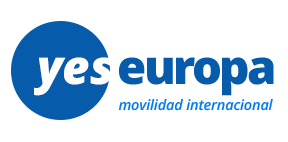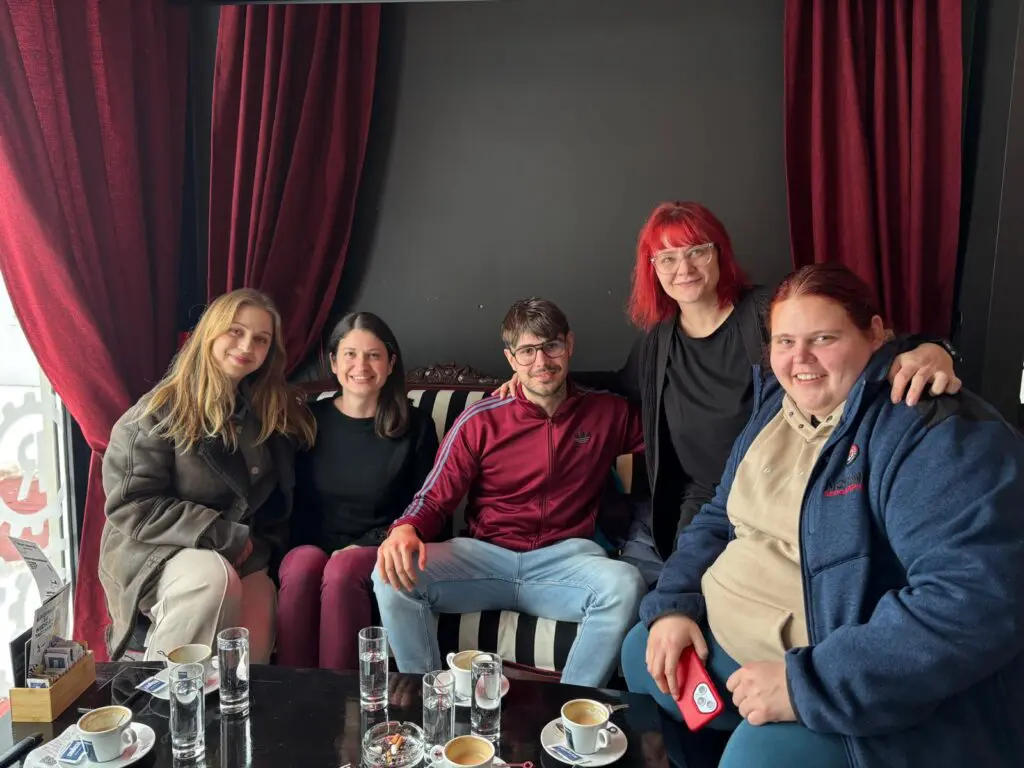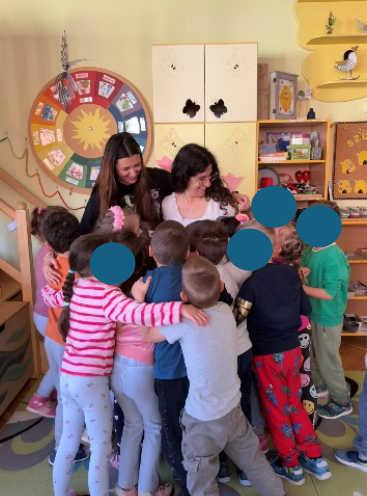Franziskus Heiligenbronn – Assisted Living for the Disabled
Project start September 2015, duration 12 months
Description of the organisation
The foundation St. Franziskus Heiligenbronn is an ecclesiastical foundation under public law. It performs a charitable mission based on christian-catholic principles, in particular for people of all ages with impaired senses, elderly people in need of care and for children and young people.
The foundation is represented at 10 locations in southwestern Germany, attends and conducts about 1.350 people in need and employs about 1.200 staff members. The Foundation is a registered non-profit organisation for care of the disabled and elderly people as well as youth welfare. Most of the staff members are trained in vocational fields like: geriatric care, inclusive education, residential care, nursing, special education as well as administration.
At the location of Schramberg the Foundation St. Franziskus offers various living facilities for disabed people: nursing homes, assisted living groups and ambulant looked after living groups. These offerings cover assistance, speciall needs, and care by qualified employees, assistants and volunteers. Extensive leisure time facilities and fostering participation are integrated in daily live of of the living groups.
Special needs
The teaching staff of the assistance and special needs department are qualified specialists in Social or Therapeutic Pedagogy and apart from their theoretical knowledge they are experienced in practice. According to requirements of disadvantaged volunteers they will develop and carry out an individual concept for reinforced mentorship.
Volunteers with special needs could be accepted after consultation with the hosting as well as sending organisation to find and to agree appropriate opportunities of voluntary activities. According to the nature of disadvantages a preparatory visit will be planned.
Motivation and EVS experience
The charitable foundation St. Franziskus Heiligenbronn collaborates in care for handicapped and disabled persons a fairly long time with voluntarily working people. Apart from participants in the german Voluntary Social Year program and conscientious objectors this includes relatives of residents and citizens from Schramberg and its surroundings, who get voluntarily involved in the social care of handicapped people.
By hosting young people from abroad we want to provide insight in our work with people with impairement of senses to convey a comprehensive understanding for the relevance of voluntary work for the civil society.
This cooperation with European Volunteers enables the development of an European awareness involving all employees in that placement as well as reflecting and discussing the work and lifestyles of different countries.
Since September 2009 all in all 5 young people completed a European Voluntary Service in the School for the Sensorial Disabled of the Foundation St. Franziskus, the experiences were throughout positive, therefore the Foundation St. Franziskus want to give young people from abroad to gain experiences in this field too.
Project environment
The foundation St. Franziskus Heiligenbronn is an ecclesiastical foundation under public law. It performs a charitable mission based on christian-catholic principles, in particular for people of all ages with impaired senses, elderly people in need of care and for children and young people.
The foundation is represented at 10 locations in southwestern Germany, attends and conducts about 1.350 people in need and employs about 1.200 staff members. The Foundation is a registered non-profit organisation for care of the disabled and elderly people as well as youth welfare.
Most of the staff members are trained in vocational fields like: geriatric care, inclusive education, residential care, nursing, special education as well as administration.
On offer are internships for vocational preparation or as part of vocational training, Voluntary Social Year and National Voluntary Service program in diverse fields as well as work shadowing. Collaboration is also possible on a volunteer basis during weekends and holidays; e.g. as additional support in group homes or attendance for holiday camps.
The foundation St. Franziskus is headquatered in Heiligenbronn, which is an incorporated village of the town of Schramberg located in the southwest of Germany, in the Black Forest.
Schramberg is the second largest town of the district of Rottweil and has 22.300 inhabitants.
Originally a town of clock and watch industry today Schramberg is a modern city that offers culture, sport, leisure time activities and nature, shopping facilities for citizens and tourists. With all these offerings Schramberg meets the requirements of a middle level center for the surrounding villages.
A well developed bus traffic system offers at regular intervals connections to the district capital Rottweil and the train stations at Villingem-Schwenningen, Offenburg and Stuttgart.
To ensure regional mobility volunteers get a monthly ticket which is valid for all public transport associations of the administrative district of Rottweil, on weekdays from 14:00 h, during weekend and school holidays the ticket is also valid in the neighbouring administrative districts of Schwarzwald-Baar, Tuttlingen and Konstanz.
The incorporated village of Heiligenbronn is shaped by the foundation St. Franziskus. The Franciscan Monastery and the facilities of the foundation take up a bigger part of the surface area. The foundation runs social facilities and services for people with impaired senses, elderly and handicapped people from all over the region.
The foundation take care and supports about 500 people at the location of Heiligenbronn and employs there about 450 staff members. Among other things they are running a school for the Hard of Hearing, a logopedic kindergarten, a boarding school for the Blind and Visually Impaired, a vocational school and vocational training for people with impaired senses, shelterd workshop for blind people, homes for handicapped people and a couselling center.
European Volunteers are expected to keep the rules of our work with handicapped young people:
- acceptance of young people in their particular personality
- ability to cope with strain by challenging behaviour
- full cooperation with staff members
- loyal and responsible acting according to the particular objective of our work
- to be courageous to act creative and flexible
Proposed activities for EVS volunteers
Learning opportunities
During their voluntary service the volunteers will get non-formal qualifications as well as key qualifications in the areas of character-building and social and linguistic skills. They get to know different ways of life and learn to deal with disabled people. They learn organisational structures of daily care for disabled people and how to find their place in it.
Volunteers will get to know during their activities social needs of disabled people.
The self-reliant offering of activities for disabled people will pass on self assurance and confidence in their own skills to volunteers.
Volunteers can take part in a language training for European Volunteers arranged by the coordinating organisation. The aim of the language training is the command of oral every day speech with a special focus on the terminology of child care. Through language training the volunteer should be enabled to manage typical situations of daily life they will be confronted with during their voluntary service.
Apart from language learning the language training serves as a weekly meeting for European Volunteers from several EVS projects situated in the region.
Every month a day of studies will be organised vor the volunteers, where the volunteers can seek advise for their choice of occupations in future, meet counselors from universities and colleges, visit the European Parliament in Strasbourg, go on excursions, or take part in cultural events. The content of this program will be discussed by the group and participation is left up to the volunteers.
Tasks:
- Volunteers get the opportunity to contribute – under guidance of staff members – to the daily support and leisure time program of the living groups. Volunteers can introduce their own ideas and abilities like handicraft work, computer literacy, graphic design, mechanical skills, music playing etc. In the beginning the volunteer will only assist the groupleaders, later she/he will take on responsibility – as far as admitted by legal liabilities. Emphatically volunteers are invited to bring in their own ideas. Staff members will appreciate all initiatives to develop additional proposals for leisure time activities and will support planning and realization. Volunteers could develop their ideas for new games, activities or stories into a personal project if they so wished – creative ideas are always welcome.
- Volunteers are invited to participate in internal vocational training seminars.
- Volunteers are expected to accomplish a fulltime voluntary service of 38 hours per week. Overtime doing will be balanced by additional freetime.
Volunteer profiles and recruitment process
The volunteer should be open-minded to work with disabled people.. It’s necessary for the volunteers to be sociable and outgoing, to have enthusiasm, and to be tolerant to foreign cultures. They should be able to interact well with different groups of people. An enthusiastic, responsible and flexible attitude towards the work is very important. Experiences in the care of disabled people would be helpful, but not a prerequisite.
Volunteers should able to get easily in touch with the staff members as well as the disabled people.
A basic knowledge of german language would be helpful.
Candidates should describe their motivation for a voluntary service in this project in a detailed motivation letter. Important are neither national or social background, gender, language skills nor level of education, but a convincingly motivation.
Number of volunteers hosted: 2
Risk prevention, protection and safety
The host organization provides continuous monitoring, including easy access to the contact person (Tutor), regular dialog with the volunteers, in which the options for personal development and the interests of the volunteer are being discussed.
To prevent crises from occurring in the first place, volunteers will be given any training necessary for them to carry out their tasks.
Volunteers will be informed about their rights, regulations in the host organization, consequences of unacceptable behaviour.
In terms of risk and crisis prevention it is very important to keep all persons involved in the project informed to be able to act immediately in the case of a crisis.
However if problems occur, volunteers have different people to contact and discuss problems with. The different people are pro-active in seeking area of concern and actively finding solutions to the issues arising.
The line manager in the respective working group is on hand daily for problems, the director of the hosting organisation is accessible for volunteers every day and the co-ordinator is available by e-mail and phone at every time but meets the volunteers weekly or biweekly during language training.
Weekly during language training volunteers can meet participants from other EVS-projects from the region to exchange experiences.
Volunteers wil have the opportunity to stay in contact with their family and sending organization via e-mail or telephone at least on a weekly basis.
Organisation topics
- Disabilities – special needs
- Health and wellbeing
Inclusion topics
This organisation is willing to involve volunteers who face situations which make their participation in activities more difficult, from the following categories for different types of project:
- Educational difficulties
- Cultural differences
- Economic obstacles
Selection process
For the selection of the volunteers we will need:
– Europass CV with picture (made in the last month)
– Motivational letter, writing that your sending organisation will be “Building Bridges”. We ask all candidates to send a specific letter of motivation – why they want to volunteer with us rather than just a general EVS one.
Remember to write in the motivation letter that your sending institution is “Asociación Building Bridges”.
All documents written in english you can send to: asociacionbb@gmail.com with subject “SVE en residencial supervisado, Alemania».




Add a comment